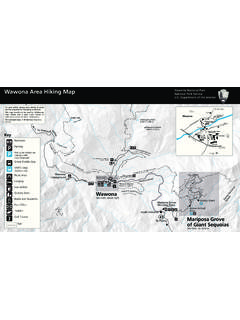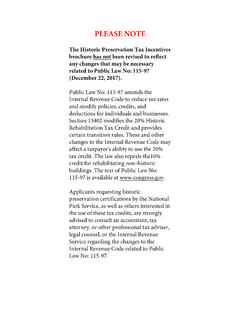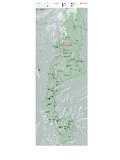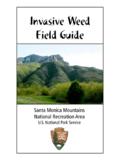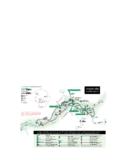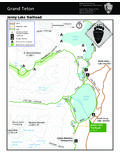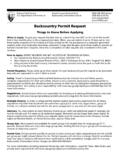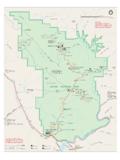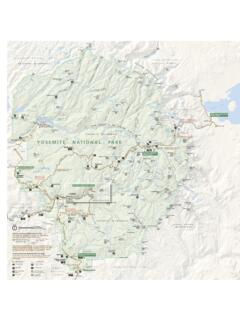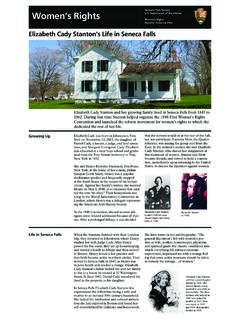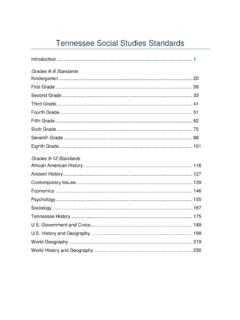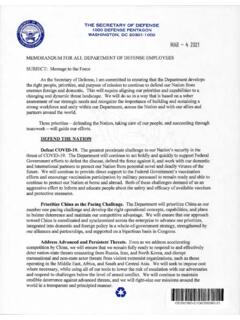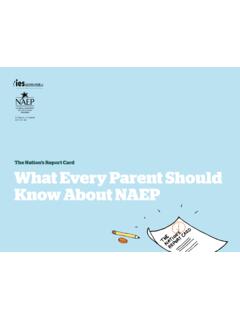Transcription of Gettysburg, Pennsylvania November 19, 1863
1 The gettysburg Address gettysburg , Pennsylvania November 19, 1863 During a three-day Civil War battle at gettysburg in early July 1863 , there were over 23,000 Union casualties (including more than 3,000 deaths) and 28,000 Confederate casualties (including at least 4,000 deaths). A portion of the battlefield was dedicated as a National Soldiers Cemetery for the thousands of soldiers who had died. Abraham Lincoln wrote and spoke the famous words known as the gettysburg Address (below) at the ceremony on November 19, 1863 . He was not the main speaker for the dedication. Edward Everett, a well-known orator, was the chief speaker and spoke for two hours. Lincoln s speech consisted of 272 words, lasted 2 minutes, and became known as one of the greatest speeches ever made by an American president. Many young people were in the huge crowd that day. Henry Jacobs, who was standing in front of the speaker s stand wrote the following about President Lincoln: At first his voice sounded a little strained and high-pitched, as if he were trying to throw his voice to the outer edge of the crowd.
2 He held in his right hand the manuscript he had brought from the White House.. He emphasized the words of, by, and for (the people) with a stiff yet sweeping bend of his body, holding the manuscript rigidly in both hands.. Then he drew himself up to his immense height, with his arms outstretched, as he impressively uttered the final words, shall not-perish-from-the-earth. Four score and seven years ago our fathers brought forth on this continent, a new nation, conceived in Liberty, and dedicated to the proposition that all men are created equal. Now we are engaged in a great civil war, testing whether that nation, or any nation so conceived and so dedicated, can long endure. We are met on a great battlefield of that war. We have come to dedicate a portion of that field, as a final resting place for those who here gave their lives that that nation might live. It is altogether fitting and proper that we should do this. But, in a larger sense, we cannot dedicate -- we cannot consecrate -- we cannot hallow -- this ground.
3 The brave men, living and dead, who struggled here, have consecrated it, far above our poor power to add or detract. The world will little note, nor long remember what we say here, but it can never forget what they did here. It is for us the living, rather, to be dedicated here to the unfinished work which they who fought here have thus far so nobly advanced. It is rather for us to be here dedicated to the great task remaining before us -- that from these honored dead we take increased devotion to that cause for which they gave the last full measure of devotion -- that we here highly resolve that these dead shall not have died in vain -- that this nation, under God, shall have a new birth of freedom -- and that government of the people, by the people, for the people, shall not perish from the earth. 1 References: Source: Collected Works of Abraham Lincoln, edited by Roy P. Basler. The text above is from the so-called "Bliss Copy," one of several versions which Lincoln wrote, and believed to be the final version.
4 Bracken, Thomas. Overcoming Adversity: Abraham Lincoln. Philadelphia: Chelsea House Publishers,1998. Ostendorf, Lloyd. Abraham Lincoln: The Boy The Man. Illinois: Philip H. Wagner, 1962. 2
